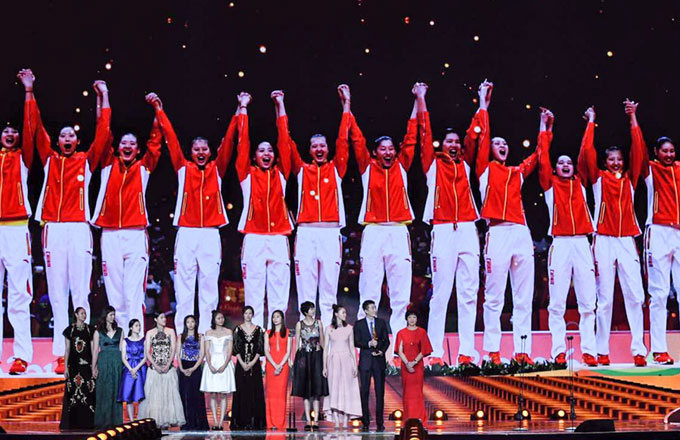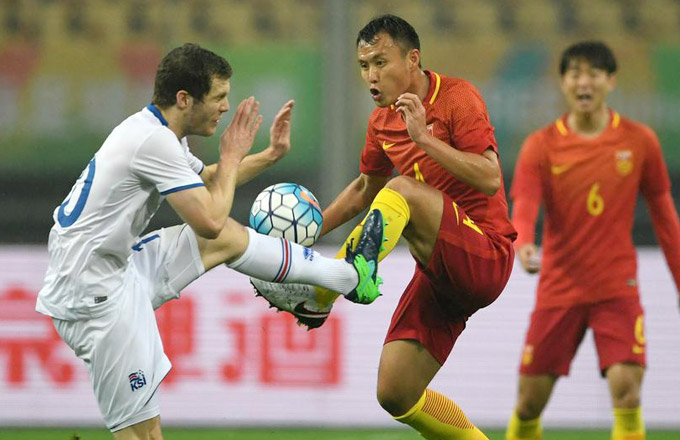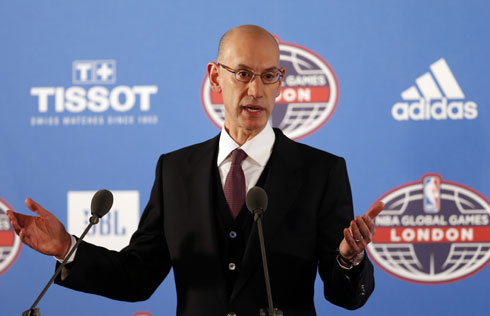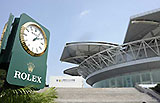Rule aimed at promoting home talent
Chinese soccer's governing body has cut the number of foreign players that clubs can field in domestic matches, citing a need to curb "irrational" spending and encourage the development of more homegrown talent.
Starting in the new season, which kicks off in early March, clubs in the Chinese Super League and China League One will be allowed a maximum of three foreigners on the pitch, down from five, according to a statement by the Chinese Football Association on Monday.
"Clubs have been investing irrationally in foreign stars, with staggering transfer fees and salaries, while neglecting the cultivation of homegrown players," the association said. "The new regulation will provide more opportunities for local players as well as helping to regulate clubs' financial operations."
The association also said each club is now required to have at least two Chinese players under the age of 23 in their 18-member matchday squad, and at least one in the starting lineup.
Stimulated by the central government's plan to make China a global soccer power by 2050, cash-rich CSL clubs have spent hundreds of millions of dollars on luring a legion of high-profile imports, including Brazilian midfielder Oscar and Argentine striker Carlos Tevez, with expectations they will instantly enhance team performances.
CSL teams can still register up to five foreigners in their matchday squad, just like previous seasons, the association said.
The move has been met with a mixed response from fans and soccer insiders.
"The heavy reliance on foreign players has crowded out homegrown players, preventing them from maturing through adequate playing time. The new policy is a reasonable way to curb this negative trend," said soccer commentator Meng Hongtao, a former spokesman for the Chinese national women's team.
Fan Zhiyi, a former national team captain who featured at the 2002 FIFA World Cup, China's only appearance at the elite tournament, also supports the new regulation.
"The new rule offers inspiration for young Chinese players," he said. "Big-name foreigners attract attention to the league, but our own young players will be responsible for representing China on the international stage in the future. It's better to take action than standing still."
However, Ma Lin, coach of Liaoning Hongyun FC, which plays in the CSL, said that the rule change could affect smaller clubs.
"Although the rule was apparently implemented to curb wealthy clubs' spending, it could end up affecting smaller clubs, many of which rely on foreigners even more, as they don't have the financial prowess to establish a solid roster of Chinese players, and have to sign imports in case any of them gets injured," he said.
Qin Sheng, a defensive midfielder for Shanghai Greenland Shenhua, another CSL team, said that the new rule of having to start an under-23 player is too progressive.
"It goes against the nature of the game that players earn their place in the starting lineup based on their competency," Qin wrote on social media. "Developing domestic talent should be a step-by-step process, not something that is achieved through administrative interference."














